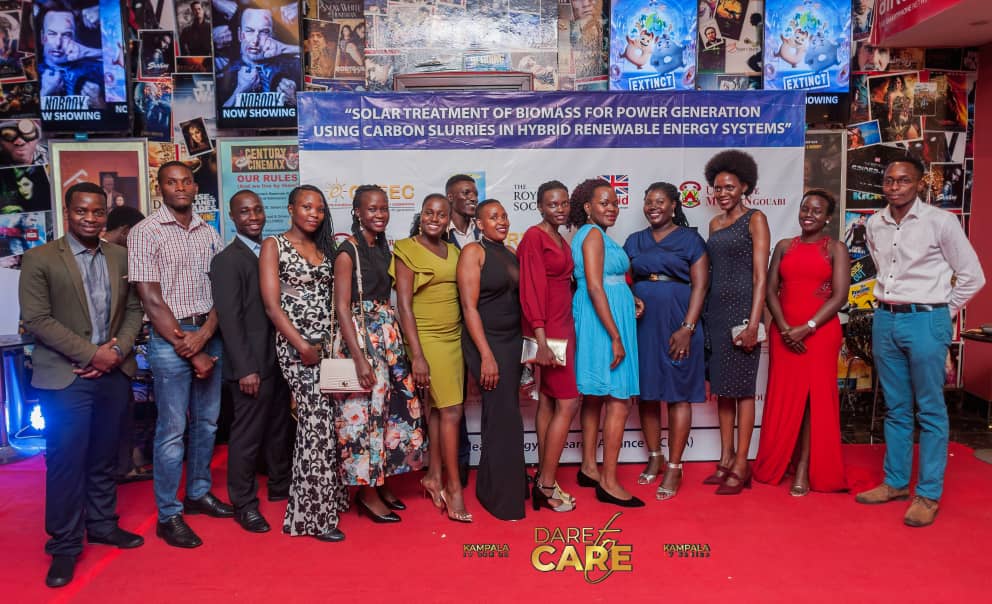Success for Leeds Royal Society Africa project

Blog by Prof. Jon Lovett, Chair in Global Challenges.
A five-year collaboration between the University of Leeds and partners in Uganda, Tanzania and the Republic of Congo has recently received a very positive final evaluation from the Royal Society. The project was one of twelve in the Royal Society ‘Africa Capacity Building Initiative’ supported by the UK Department for International Development. The Leeds project focused on renewable energy and explored the possibility of using solar power to combust biomass, which is then ground into a powder to create a fuel similar to diesel.
Andy Ross in the School of Chemical and Process Engineering led the technical aspects of the £1.2M project and Jon Lovett in the School of Geography led the project overall. The evaluation grade was ‘very good – excellent’ on the basis of ten scientific papers produced by the team, which included senior scientists and PhD students from the collaborating countries. As part of the capacity building component of the project the PhD students from Africa worked with Leeds students in the EPSRC Centre for Doctoral Training in Bioenergy.
Success of the capacity building was evidenced by both PhD students and collaborating staff going on to senior positions. For example, Dr Mwaka Juma from Tanzania became Head of the Department of Electrical Engineering at the Dar es Salaam Institute of Technology upon completing her PhD; and Dr Maryse Nkoua, a lecturer at the Université Marien Ngouabi, has been appointed Executive Director of the newly established Oyo Center of Excellence for Renewable Energy and Energy Efficiency in the Republic of Congo.
The project was designed from the outset to bring more gender balance into renewable energy engineering skills. Jon Lovett said “From the very beginning of the project we ensured that there was a good gender balance as means of correcting the traditional skew towards men in engineering and leadership positions. We are very pleased that this plan at the beginning has borne fruit with career advancement and consolidation in leadership positions by the women in the team.”
The project also created ongoing collaboration between the three partners in Africa. Mary Susan Abbo, Managing Director of the Centre for Research in Energy and Energy Conservation in Uganda said “Dr. Juma has invited us for an exchange with Tanzanian students and Dr Maryse has invited CREEC to support in building capacity and setting up the new Oyo energy centre”.
Outreach beyond the project partners has been achieved with the creation of two massive open online courses on the FutureLearn platform, one on Bioenergy and the other on Microgrids; and a feature film and TV drama series on renewable energy themes set in Uganda to introduce the new technologies to a wider audience in Africa.
More information on the project
Hammerton, J.M., Li, H., Ross, A.B. 2020. Char-diesel slurry fuels for microgeneration: Emission characteristics and engine performance. Energy 207: 118225, https://doi.org/10.1016/j.energy.2020.118225.
https://www.futurelearn.com/courses/renewable-energy-achieving-sustainability-through-bioenergy
https://www.futurelearn.com/courses/renewable-energy-sustainable-electricity-supply-with-microgrids
